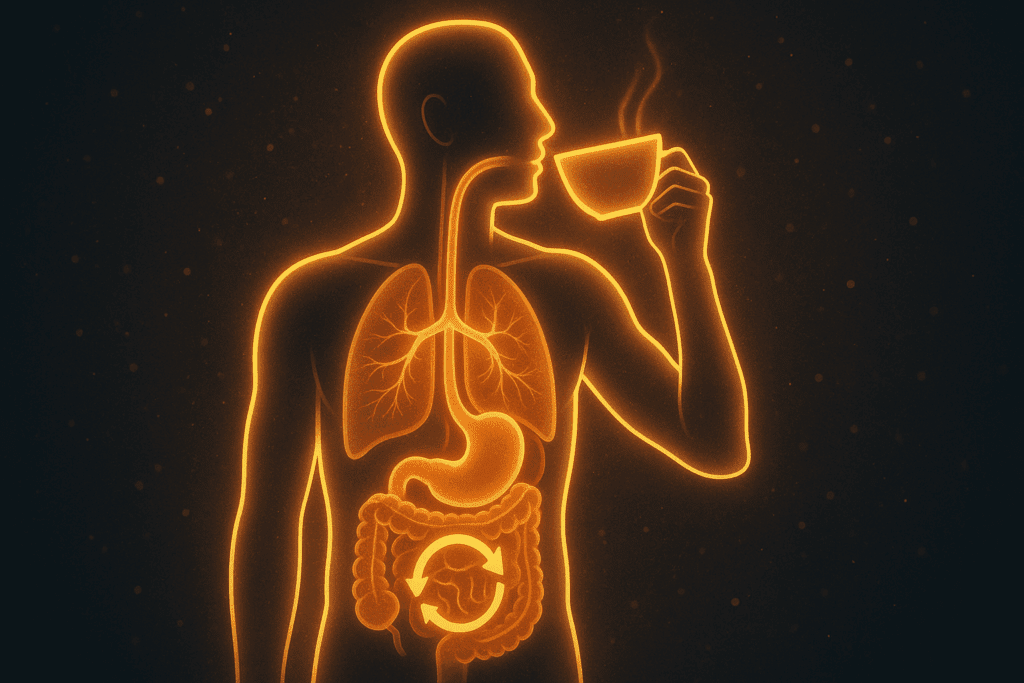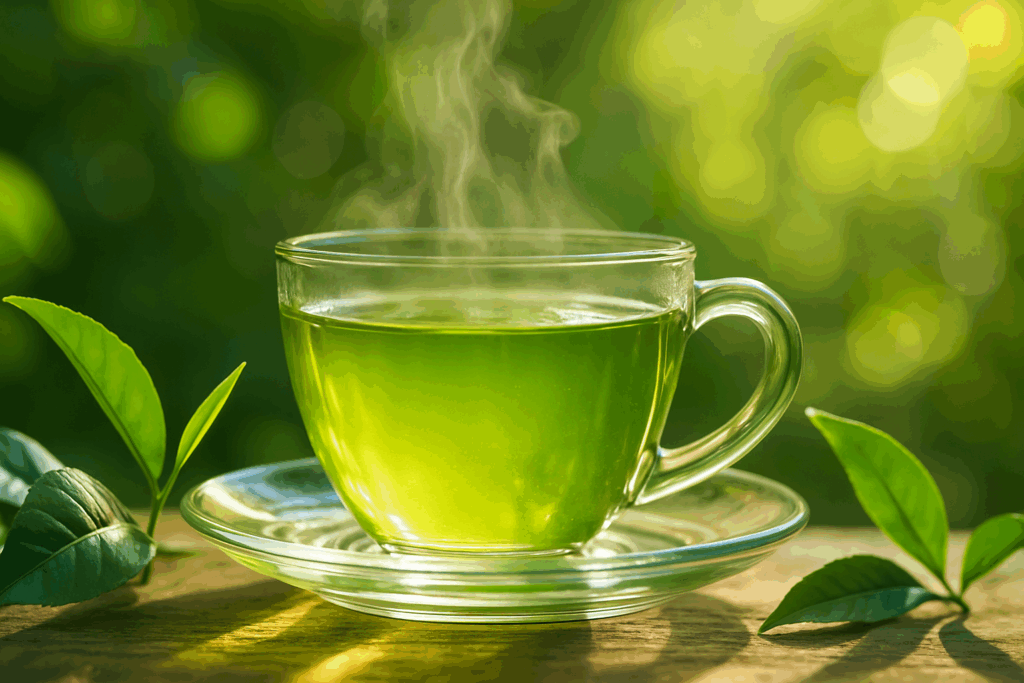Understanding the Connection Between Tea and Weight Loss: A Natural Approach to Supporting Your Goals
In today’s health-conscious society, many people are exploring natural methods to complement their weight loss efforts. Among the most popular approaches is incorporating tea into daily routines. The idea of drinking tea for weight loss has existed for centuries in various cultures, but modern science has begun to catch up, exploring how certain teas may assist with fat metabolism, appetite regulation, and overall health. For those who are searching for a good tea to drink to lose weight, the conversation is no longer rooted in folklore alone—it is increasingly grounded in evidence-based findings.
You may also like: Expert-Backed Weight Loss Tips for a Healthier Lifestyle: What You Need to Know for Long-Term Weight Control and Wellness
Tea is more than a comforting beverage. It is a rich source of bioactive compounds, antioxidants, and phytochemicals that can support metabolic health when consumed in the context of a balanced lifestyle. But can tea help you lose weight in a meaningful and safe way? According to nutritional experts and peer-reviewed studies, certain types of tea may play a modest but notable role in fat oxidation, energy expenditure, and even appetite control. While tea is not a substitute for healthy eating and physical activity, its integration into a well-rounded wellness plan can make a difference—especially when chosen thoughtfully and consumed consistently.

How Tea Influences Metabolism, Fat Oxidation, and Satiety
At the core of the tea-weight loss relationship is metabolism—the biochemical process by which your body converts food into energy. Some teas, particularly green tea and oolong tea, are believed to stimulate thermogenesis, the body’s calorie-burning process. Green tea, for example, contains a powerful antioxidant known as epigallocatechin gallate (EGCG), which has been shown to increase fat oxidation during exercise. EGCG, combined with moderate caffeine content, can have a mild thermogenic effect that may help the body burn more calories, especially when consumed regularly.
Another way tea may contribute to weight management is by influencing appetite regulation. Herbal teas like peppermint or rooibos have been found to promote a feeling of fullness or reduce cravings, especially when used between meals. This satiety effect can support calorie control, a key factor in weight loss. While the impact may not be dramatic, over time, even small changes in appetite regulation can lead to sustainable results.
It’s also worth noting that replacing sugary drinks or high-calorie snacks with tea can create a net reduction in daily caloric intake. Choosing to drink tea for weight loss, particularly in place of soda or sugary coffee beverages, supports healthier consumption habits and can gradually lead to changes in body composition. When evaluating if tea is a good choice for weight loss, it’s important to consider the entire dietary pattern and how tea fits into it.

Green Tea: The Most Researched Tea for Weight Loss Support
Among all the options available, green tea continues to receive the most attention from researchers and health professionals. Its high antioxidant content, particularly EGCG, is linked to enhanced fat oxidation, especially when consumed before or during physical activity. Studies suggest that green tea extract may support a modest reduction in body fat percentage and body weight, particularly when combined with a calorie-controlled diet and exercise regimen.
Green tea’s caffeine content also plays a role in stimulating energy expenditure. Although the caffeine amount is significantly lower than that in coffee, it’s enough to slightly raise metabolic rate in some individuals. This combination of caffeine and catechins provides a gentle metabolic boost without the jitteriness associated with higher-caffeine beverages.
The question “can tea help you lose weight” is particularly relevant when considering green tea. Clinical trials suggest that participants who regularly consumed green tea experienced greater fat loss than those who didn’t, especially in the abdominal area. While the effects are not miraculous, they are statistically significant, making green tea a standout choice among those seeking a good tea to drink to lose weight. For best results, experts recommend drinking two to three cups daily, ideally unsweetened and freshly brewed.

Oolong Tea: A Traditional Tea with Thermogenic Potential
Oolong tea, a semi-oxidized tea that falls between green and black tea in terms of processing, has garnered attention for its ability to boost metabolism and improve fat oxidation. A 2020 study published in the journal Nutrients found that oolong tea enhanced fat burning both during waking hours and sleep, suggesting that it may help the body continuously metabolize fat even at rest. This makes oolong another promising tea for weight loss, especially for individuals with slower metabolisms or those struggling with fat retention.
Its unique polyphenolic compounds work synergistically with caffeine to increase energy expenditure. Some small-scale studies have shown that individuals who drank oolong tea daily for several weeks experienced a modest reduction in body fat. Additionally, oolong tea has been linked to improved lipid metabolism, which may support healthier cholesterol levels in the long term.
Because oolong tea is milder in flavor than green tea and contains less bitterness, it can be a more enjoyable option for some. Drinking oolong tea for weight loss provides a palatable alternative for those seeking metabolic benefits without overpowering flavor. It’s recommended to consume oolong in the morning or early afternoon to take advantage of its energizing effects without interfering with sleep.
Black Tea: The Underestimated Contender in Weight Management
Although green tea dominates the conversation, black tea deserves recognition for its potential contributions to weight loss. While it contains fewer catechins than green tea, black tea undergoes full oxidation, which increases the presence of theaflavins and thearubigins—polyphenols that may support fat metabolism, especially in the digestive tract. Emerging research suggests that black tea polyphenols may promote the growth of beneficial gut bacteria linked to improved weight regulation.
One fascinating area of study involves black tea’s impact on calorie absorption. Some findings indicate that compounds in black tea can bind to lipids and carbohydrates in the gut, slowing or reducing their absorption. This could theoretically support modest reductions in caloric intake, although further large-scale research is needed to confirm these effects. Nevertheless, black tea can play a supportive role when consumed alongside a fiber-rich, plant-based diet.
Black tea is often consumed with milk and sugar, which can undermine its health benefits. To effectively use black tea for weight management, it’s best consumed plain or with minimal natural sweeteners like cinnamon or lemon. In this context, choosing to drink tea for weight loss—especially black tea—requires careful attention to preparation methods to avoid inadvertently adding calories that counteract the potential benefits.

Herbal Teas for Appetite Control and Digestive Support
Not all effective teas for weight loss contain caffeine. Herbal teas, which are made from dried fruits, flowers, herbs, and spices, offer an entirely different set of benefits that can support weight loss indirectly. Peppermint tea, for instance, is often used to curb appetite and soothe digestive discomfort. Studies suggest that simply inhaling peppermint oil may reduce hunger cravings, and drinking the tea may offer similar results.
Ginger tea, another popular herbal choice, is known for its thermogenic properties and ability to aid digestion. Some studies suggest ginger may enhance calorie burning and reduce inflammation, both of which can support a weight loss journey. Rooibos tea, derived from the red bush plant in South Africa, contains antioxidants like aspalathin that may help regulate stress hormones related to fat storage, particularly cortisol.
While herbal teas may not directly cause fat loss, they play a crucial supportive role in a holistic wellness plan. Many individuals who regularly drink herbal teas report improved digestion, reduced bloating, and fewer cravings—all of which are meaningful steps toward sustainable weight loss. When evaluating a good tea to drink to lose weight, it’s important to consider the broader impact on overall health and well-being, not just the scale.
The Science Behind Drinking Tea for Weight Loss: What Studies Show
When examining the question “can tea help you lose weight,” it’s vital to review the scientific literature for context. A meta-analysis published in The American Journal of Clinical Nutrition reviewed over 15 randomized controlled trials and found that green tea catechins significantly reduced body weight and maintained weight loss over time. Similarly, studies on oolong tea demonstrated a sustained increase in fat oxidation, suggesting that continued use may support long-term fat reduction.
Research on black tea, although more limited, has shown potential for improving gut health, which is increasingly recognized as an important factor in weight regulation. The gut microbiome plays a critical role in nutrient absorption, hormone regulation, and inflammation—all key factors in metabolism. Polyphenols in tea may promote a healthier microbial balance, which could indirectly support weight management efforts.
Another noteworthy study published in Obesity found that overweight participants who consumed high-catechin green tea daily experienced significantly greater abdominal fat loss compared to a control group. These findings reinforce the idea that while tea is not a magic bullet, it can be a powerful adjunct in a comprehensive weight loss strategy. For those committed to drinking tea for weight loss, the evidence supports consistency and pairing tea consumption with physical activity and a healthy diet.
How to Choose the Best Tea for Your Weight Loss Journey
Selecting the right tea involves more than choosing a flavor or picking a trending brand. Different teas have different mechanisms of action, and individuals respond differently based on genetics, lifestyle, and existing health conditions. For those seeking a good tea to drink to lose weight, green tea remains a top choice due to its extensive research base. However, those sensitive to caffeine may prefer herbal alternatives or decaffeinated green teas that still retain antioxidant properties.
It’s also important to consider quality. Loose-leaf teas often contain more intact compounds and fewer additives compared to bagged teas. Organic teas can reduce exposure to pesticide residues, which may disrupt hormonal balance and weight regulation. Additionally, drinking freshly brewed tea rather than powdered or bottled versions ensures better bioavailability of the active compounds, especially EGCG and polyphenols.
Timing can also influence effectiveness. Some experts recommend drinking green or oolong tea in the morning to support daytime metabolism, while herbal teas like chamomile or peppermint can be used in the evening to reduce nighttime cravings and support digestive rest. Building a tea routine that complements your body’s rhythm may enhance results over time and increase adherence to healthy habits.
Common Mistakes to Avoid When Drinking Tea for Weight Loss
While incorporating tea into a weight loss routine can be beneficial, some common mistakes may limit or even reverse the desired effects. The most common pitfall is sweetening tea with sugar, honey, or flavored syrups, which can add significant calories. For example, adding two teaspoons of sugar to three cups of tea per day can result in an extra 90 calories daily—more than enough to offset the mild metabolic boost provided by tea.
Another frequent error is relying on tea alone while neglecting diet and physical activity. Drinking tea for weight loss should be viewed as a supportive tool, not a standalone solution. Some individuals may also turn to “detox teas” marketed with exaggerated claims or containing laxatives, which can pose health risks and lead to dehydration rather than fat loss. Experts strongly advise against using teas that promise extreme weight loss or immediate results without lifestyle changes.
Finally, overconsumption of caffeine-rich teas can lead to sleep disturbances, increased heart rate, or gastrointestinal upset. Moderation is key, and it’s generally safe to consume up to three to four cups of tea daily for most adults. Listening to your body, monitoring energy levels, and consulting with a healthcare provider when needed ensures that your tea regimen remains safe and effective.

A Sustainable Habit: Integrating Tea into a Balanced Lifestyle
One of the greatest strengths of using tea to support weight management is its potential for long-term sustainability. Unlike restrictive diets or intense fitness trends that can be difficult to maintain, tea is a gentle and enjoyable addition to everyday life. For those wondering “can tea help you lose weight” in a realistic and manageable way, the answer is yes—particularly when integrated into a larger framework of mindful eating, movement, and stress management.
Tea rituals also promote mindfulness. Taking time to prepare and enjoy a warm cup of tea can serve as a calming practice, helping to reduce stress-related eating and emotional snacking. This emotional regulation aspect is often overlooked but plays a significant role in weight gain and difficulty losing weight. In this way, tea supports not just the physical aspects of weight loss but the mental and emotional components as well.
Furthermore, choosing to drink tea for weight loss encourages hydration, a crucial factor in metabolic health, digestion, and appetite control. Replacing calorie-laden drinks with tea can create a calorie deficit without the sense of deprivation, making it a highly effective habit to support lasting change. With so many varieties available, from energizing matcha to soothing chamomile, there is a tea for every palate and time of day.
Frequently Asked Questions: Can Tea Really Help with Weight Loss and How to Maximize Its Effects?
1. How does tea compare to coffee when it comes to supporting weight loss efforts?
While both tea and coffee contain caffeine, their effects on weight loss differ due to the presence of distinct bioactive compounds. Tea, particularly green and oolong varieties, is rich in catechins like EGCG, which have been shown to promote fat oxidation more gently and consistently than caffeine alone. Unlike the abrupt energy spike often associated with coffee, tea typically delivers a smoother metabolic lift, making it easier to integrate into a daily wellness routine without disrupting sleep or inducing jitteriness. If you’re looking for a good tea to drink to lose weight without overstimulating the nervous system, green tea or white tea may offer a better balance than coffee-based solutions. In terms of long-term strategy, many people find it more sustainable to drink tea for weight loss due to its milder stimulation, antioxidant profile, and digestive support properties.
2. Can drinking tea help with emotional eating or late-night snacking habits?
Yes, one of the lesser-known benefits of tea is its ability to reduce emotional or stress-related eating behaviors, particularly in the evening. Many herbal teas such as chamomile, lemon balm, and rooibos have calming effects that help regulate cortisol and support nervous system relaxation. For individuals who tend to snack out of boredom, stress, or anxiety, developing a soothing tea ritual can offer a mindful alternative to food. If you’re wondering whether tea can help you lose weight through behavioral changes, the answer lies in its role in promoting healthier coping mechanisms and reducing impulsive eating. Choosing to drink tea for weight loss during vulnerable moments like late-night cravings can subtly but powerfully shift dietary habits in a more conscious direction.
3. What is the best way to brew tea for maximum fat-burning potential?
To unlock the full potential of a good tea to drink to lose weight, how you brew it matters. For green and oolong teas, water temperature and steeping time are key—ideally around 160–180°F (not boiling), steeped for 2–3 minutes. Overheating the water can destroy delicate catechins like EGCG, which are responsible for many of the metabolic benefits. Additionally, using fresh, loose-leaf tea rather than pre-packaged tea bags can increase the concentration of active compounds. If you want to drink tea for weight loss effectively, brewing with filtered water and consuming it while freshly steeped (rather than letting it sit for hours) helps preserve the potency of beneficial antioxidants.
4. Are there any risks of drinking too much tea for weight loss purposes?
While moderate tea consumption is generally safe, excessive intake—especially of highly caffeinated teas—can lead to side effects such as insomnia, gastrointestinal discomfort, or iron absorption interference. For most adults, 3–4 cups of tea per day is considered safe and beneficial. However, if you’re pregnant, taking certain medications, or managing a chronic health condition, it’s important to consult a healthcare provider. When choosing a good tea to drink to lose weight, keep in mind that detox teas containing senna or diuretics may cause dehydration or electrolyte imbalances when overused. Responsible use and variety in your tea choices allow you to drink tea for weight loss without compromising your overall well-being.
5. Can tea help support weight maintenance after reaching a goal weight?
Absolutely. While tea can assist in the active phase of fat loss, it also plays a valuable role in weight maintenance by supporting digestion, hydration, and blood sugar regulation. Continuing to drink tea for weight loss after reaching your target can reinforce the habits that helped you get there—such as mindful eating and replacing high-calorie beverages with healthier options. Additionally, teas like white tea and pu-erh have been studied for their ability to inhibit new fat cell formation or enhance gut microbial balance, both of which are relevant for long-term weight control. The question isn’t just can tea help you lose weight, but can it help you stay there—and the evidence suggests that it can.
6. How does gut health interact with the benefits of tea for weight loss?
Emerging research shows a strong link between the gut microbiome and metabolic health, and certain teas may support this balance. Polyphenols in black, green, and herbal teas act as prebiotics, feeding beneficial gut bacteria that contribute to better nutrient absorption and immune function. When your microbiome is healthy, it’s easier to regulate appetite hormones and metabolize food efficiently—both critical for weight loss. If you’re exploring a good tea to drink to lose weight with digestive benefits, fermented teas like pu-erh or kombucha offer unique microbiota-enhancing properties. This gut-focused approach to drinking tea for weight loss goes beyond calorie counting, targeting the root systems that influence metabolic efficiency.
7. What role does hydration play in the effectiveness of tea for fat loss?
Hydration is often overlooked in weight management, yet it plays a central role in metabolic function and appetite regulation. Tea, being over 95% water, contributes significantly to daily fluid intake, especially for those who dislike plain water. Mild dehydration can often be mistaken for hunger, leading to unnecessary snacking, so drinking tea for weight loss may help curb faux cravings. Furthermore, staying hydrated ensures efficient nutrient transport, cellular metabolism, and elimination of waste—all of which are essential during weight loss. When selecting a good tea to drink to lose weight, herbal options like hibiscus or ginger also offer electrolyte balance and mild diuretic effects that support fluid harmony without harsh water loss.
8. Are cold teas or iced teas as effective as hot teas for weight loss?
Yes, provided the tea is brewed correctly and not loaded with added sugars or flavorings. Cold brewing tea, especially green or oolong, can actually preserve more catechins than hot brewing, since the cooler temperature prevents degradation of delicate antioxidants. Drinking chilled tea may also encourage increased fluid intake during hot weather or workouts, aiding in appetite suppression and hydration. If you’re using cold tea as a strategy to drink tea for weight loss, be sure to check labels and avoid store-bought teas with artificial sweeteners, preservatives, or high fructose corn syrup. In terms of efficacy, both hot and cold tea can be equally valid tools—as long as you’re using a good tea to drink to lose weight and consuming it in a health-conscious manner.
9. Can switching from sugary drinks to tea alone lead to measurable weight loss?
For many people, simply replacing caloric beverages such as soda, juice, or sweetened coffee with tea can result in a significant calorie deficit over time. The average 12-ounce soda contains around 140 calories, which can add up quickly if consumed daily. Choosing to drink tea for weight loss instead—particularly unsweetened green, black, or herbal teas—eliminates those empty calories without leaving you feeling deprived. Beyond just the calories, the ritual of tea can satisfy the desire for flavor or warmth, helping people break free from sugary drink dependence. If you’re looking for a practical and effective way to cut down on sugar, identifying a good tea to drink to lose weight is one of the simplest lifestyle upgrades you can make.
10. Are there future developments in tea research that could further enhance weight loss strategies?
Yes, the field of nutrigenomics—how nutrients interact with genes—is beginning to explore how individuals may respond differently to tea compounds based on genetic markers. This could eventually lead to personalized tea recommendations for weight management, where your DNA determines which tea works best for fat metabolism or appetite control. Additionally, functional teas infused with scientifically-backed adaptogens, probiotics, or metabolic enhancers are gaining attention in the wellness industry. As clinical studies evolve, we may see targeted tea blends designed to address hormonal imbalances, insulin sensitivity, or even circadian rhythms that influence body weight. For now, the key question remains: can tea help you lose weight naturally and safely? The answer continues to lean yes—but tomorrow’s research may offer an even more customized approach to choosing the best tea to drink for weight loss success.
Final Thoughts: Can Tea Help You Lose Weight Safely and Effectively?
As the evidence continues to accumulate, it becomes increasingly clear that tea—particularly green, oolong, black, and herbal varieties—can serve as a supportive element in a comprehensive weight loss plan. The key lies in choosing a good tea to drink to lose weight based on personal needs, preferences, and health goals. While the effects are not dramatic in isolation, consistent tea consumption, especially when paired with sound nutrition and regular physical activity, can contribute meaningfully to healthier body composition and improved metabolic health.
So, can tea help you lose weight naturally and safely? When approached thoughtfully, the answer is yes. Tea offers a spectrum of benefits—from fat oxidation and appetite regulation to improved digestion and reduced stress—that collectively support the body’s ability to manage weight. Unlike quick-fix solutions or extreme diets, drinking tea for weight loss is a sustainable, pleasurable, and science-backed practice that aligns with the principles of prevention, wellness, and holistic nutrition.
Ultimately, the most effective strategy is one rooted in balance. Tea is not a cure, but it is a companion—one that brings both flavor and function to your wellness journey. For those ready to make intentional changes and support their body from the inside out, embracing the power of tea may be a small but mighty step in the right direction.
Further Reading:
The #1 Drink for Weight Loss, Recommended by a Dietitian


